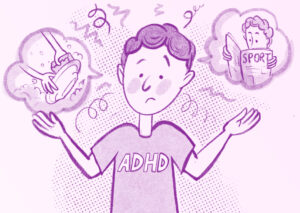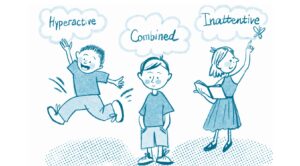Relationships, especially romantic ones, are among the most rewarding but also the most challenging parts of life. Every couple experiences ups and downs, disagreements, and misunderstandings. However, when issues persist and begin to harm your connection or emotional well-being, it may be time to consider couples therapy.
Couples therapy, also known as couples counseling or relationship therapy, is a specialized form of psychotherapy designed to help partners improve communication, resolve conflicts, and deepen intimacy. It provides a safe, guided space to work through challenges and build a stronger, healthier bond.
In this comprehensive guide, we will discuss when couples therapy is needed, why it is beneficial, what to expect during sessions, and how it can transform your relationship.
Table of Contents
ToggleWhat Is Couples Therapy?
Couples therapy involves working with a licensed therapist who specializes in relationship dynamics. The therapist helps both partners identify problematic patterns, explore underlying emotions, and develop effective communication skills.
Unlike individual therapy, couples therapy focuses on the interaction between partners, aiming to improve understanding, trust, and connection. It can address a wide range of issues, including communication breakdown, infidelity, intimacy problems, parenting conflicts, and more.
When Should You Consider Couples Therapy?
Not every relationship challenge requires professional help, but certain signs suggest that therapy might be beneficial:
1. Communication Has Broken Down
When partners struggle to talk without arguing or shutting down, therapy can help restore healthy dialogue.
2. Frequent or Unresolved Conflicts
If fights happen often and end without resolution, counseling can teach constructive conflict management.
3. Emotional Distance or Loss of Intimacy
Feeling disconnected, unloved, or unappreciated are signs therapy can address to rebuild closeness.
4. Infidelity or Betrayal
Rebuilding trust after cheating or other betrayals often requires professional guidance.
5. Major Life Transitions
Events like moving, job changes, or having children can strain relationships and benefit from support.
6. Considering Separation or Divorce
Therapy can help clarify feelings, improve communication, or facilitate an amicable separation if needed.
7. One or Both Partners Feel Unhappy or Stuck
If dissatisfaction lingers despite efforts to improve, counseling can uncover underlying issues.
Why Choose Couples Therapy?
1. Neutral, Safe Space for Communication
Therapists provide a balanced environment where both partners can express themselves openly without judgment or blame.
2. Professional Guidance to Understand Relationship Patterns
Therapists help couples identify negative cycles and learn new ways to relate.
3. Improved Communication Skills
Learning to listen actively, express needs clearly, and respond empathetically enhances connection.
4. Conflict Resolution Tools
Therapy teaches techniques to resolve disagreements constructively instead of escalating tension.
5. Rebuilding Trust and Intimacy
For couples recovering from betrayal, therapy offers a structured path toward healing.
6. Strengthening Emotional Connection
Exploring emotions and vulnerabilities deepens understanding and bonding.
7. Support During Life Changes
Guidance during transitions helps couples adapt and grow together.
8. Prevention of Future Problems
Even healthy couples use therapy to strengthen their relationship and prevent future issues.
Common Types of Couples Therapy
1. Emotionally Focused Therapy (EFT)
Focuses on understanding and changing emotional responses to build secure attachments.
2. The Gottman Method
Based on extensive research, it teaches communication, conflict management, and friendship-building skills.
3. Cognitive Behavioral Therapy (CBT)
Addresses negative thought patterns affecting relationship behavior.
4. Imago Relationship Therapy
Explores childhood experiences influencing relationship dynamics to promote empathy.
5. Narrative Therapy
Encourages couples to reframe their story to create a more positive relationship narrative.
What to Expect in Couples Therapy
Initial Assessment
The therapist will usually start with an intake session to understand your relationship history, concerns, and goals.
Regular Sessions
Therapy typically involves weekly or biweekly sessions lasting 50-90 minutes.
Open Communication
Both partners share feelings and perspectives guided by the therapist.
Homework Assignments
Couples may be asked to practice new skills or complete exercises between sessions.
Progress Evaluation
Therapists regularly check progress and adjust approaches to meet your evolving needs.
How to Prepare for Couples Therapy
- Be Open-Minded: Therapy requires willingness to explore difficult feelings and change habits.
- Set Goals: Think about what you want to improve in your relationship.
- Commit Together: Both partners should be ready to engage in the process for best results.
- Be Patient: Healing and growth take time—progress may be gradual.
- Choose the Right Therapist: Look for a licensed professional with experience in couples therapy and with whom you both feel comfortable.
Common Challenges and How Therapy Helps
Resistance to Change
Some partners may resist confronting painful truths or changing behaviors. Therapists provide a supportive environment to overcome this resistance.
Unequal Participation
If one partner is less engaged, therapy can help motivate involvement by focusing on individual and relationship benefits.
Deep-Seated Resentments
Long-standing grudges can be addressed through structured conversations and forgiveness-building exercises.
Success Stories: How Couples Therapy Transforms Relationships
Many couples find renewed hope and connection through therapy. Couples who commit to the process often report:
- Better communication and fewer arguments
- Increased intimacy and emotional support
- Greater empathy and understanding
- Strengthened trust and commitment
- Improved problem-solving skills
When Therapy Isn’t Enough
In some cases, therapy may reveal incompatibilities or irreparable damage. If separation or divorce is the healthiest choice, therapy can also support couples through this transition respectfully.
How Arpan Sarma Can Help with Couples Therapy
As an experienced psychologist, Arpan Sarma offers compassionate, evidence-based couples therapy tailored to your unique needs. Whether you’re facing communication problems, trust issues, or life transitions, Arpan provides a safe space to explore and heal.
With professional guidance, you can transform challenges into opportunities for growth and build a partnership grounded in love, respect, and understanding.
Conclusion: Taking the Step Toward a Healthier Relationship
Couples therapy is not just for crises—it’s a powerful tool for nurturing and strengthening your relationship at any stage. Recognizing when to seek help and taking that step can lead to profound improvements in how you connect and thrive together.
If you and your partner are facing challenges or simply want to deepen your bond, couples therapy can guide you toward healthier communication, greater intimacy, and lasting happiness.







